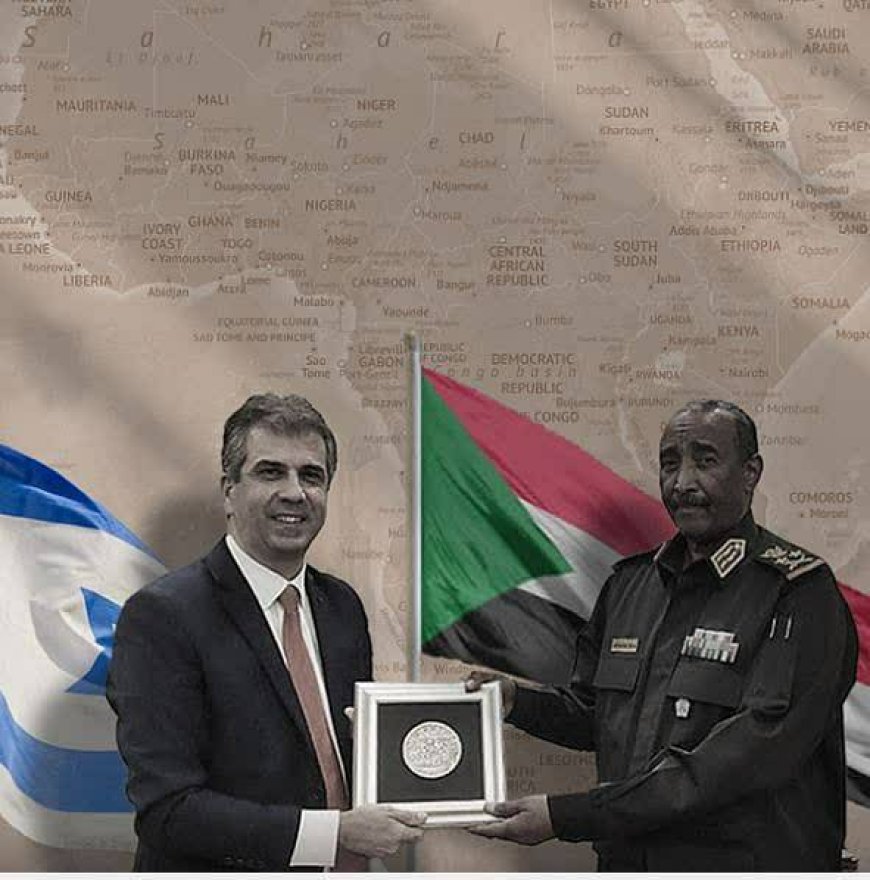What is Israel's role in mediating the Sudan crisis?
Another three-day truce was announced in Sudan, but it was quickly violated multiple times, and the situation is reported to be extremely precarious. Conflicts in Sudan, observers argue, will only get more complicated over time. The conflict between al-Burhan and Hemedti, the feuding Sudanese generals, now appears to be more of a struggle over power between two rival soldiers than a proxy war conducted by foreign forces, as both warlords have cordial ties with Egypt, the United Arab Emirates, Saudi Arabia, Israel, the United States, and Russia, all of which wield substantial influence in Sudan.

By: S. Gol-Anbari
Abdel Fattah al-Burhan, on the other hand, has more cordial ties with Egypt. Both he and Egypt's strongman, Abdel Fattah El-Sis, attended the Egyptian Military Academy. However, Hemedti's ties to Saudi Arabia and the United Arab Emirates are stronger, as he has deployed more than 15,000 mercenaries to fight in Yemen.
Even though Saudi Arabia and the United Arab Emirates have financial interests in Sudan, Egypt is more concerned with the country's internal affairs due to its nearly 1,200 kilometres of borders with the African nation. As the West continues to prioritise confrontation with Russia, the United States, which is concerned about the conflict in Ukraine, appears to be troubled by the unfolding situation in Sudan.
Meanwhile, it is unlikely that Israel views the rising instability in Sudan as beneficial. During Omar al-Bashir's rule, Sudan played a pivotal role in facilitating the transfer of weapons to the Sinai Peninsula and ultimately the Gaza Strip. After al-Bashir was deposed, the Sudanese government seized Hamas's financial assets, normalised ties with Israel, and blocked the passage of weapons to the besieged Gaza Strip.
For this reason, the disruption of Sudan's security can enable the shipment of weapons from Sudan to the Gaza Strip again, which will not be pleasing to Israel. Therefore, the Zionist regime seeks to mediate between al-Buran and Hemedti. Another primary concern for Israel is that the continuation of the war will undermine the positions of al-Burhan and Hemedti, pushing them to make concessions to political forces, namely the Islamists, which would make normalising relations with Israel more difficult.
Beyond the points mentioned above, what is important here is that Israel, which was once regarded as an arch-enemy by Arab countries, has now emerged as an active mediator in Sudan's crisis and now holds such sway in Sudan's power structure, which is particularly noteworthy given that Sudan was once a major backer of Hamas when al-Bashir was in office. To get international attention back on the Ukraine question, the US government has also requested that Tel Aviv act as a mediator between al-Buran and Hemedti.
Many West Asian leaders, both Arab and non-Arab, see the Zionist regime as their ticket to better ties with the West and, in particular, the United States. In doing so, they seek to influence US policy in the region. When it came to gaining the backing of Washington and neutralising each other, the two Sudanese generals, who had been covertly vying for power under the guise of their shaky duumvirate, went to publicly establish ties with Israel. At the present time, both al-Burhan and Hemedti see themselves as more obligated to forge closer ties with Tel Aviv. Due to the present crisis, Netanyahu now deems himself an effective mediator and has extended an invitation to al-Burhan and Hemedti to visit Israel. Reports indicate that the United States and Israel attempted to broker a ceasefire between the two warring factions two nights ago but were unsuccessful.
While all this is happening in Sudan, Israel is in the midst of an unprecedented crisis, with the prospect of civil war or perhaps collapse becoming ever closer.













































